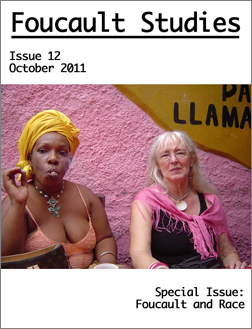The Biopolitics of Ordoliberalism
DOI :
https://doi.org/10.22439/fs.v0i12.3339Résumé
This article examines the biopolitical dimension in ordoliberal thought using Wilhelm Röpke and Alexander Rüstow as exemplary figures of this tradition. Based on an explication of various biopolitical themes that can be extracted from Foucault’s writings and lectures the article argues that these biopolitical themes, although rarely touched on in Foucault’s lectures on ordoliberal governmentality, nevertheless constitute an integral aspect of the thought of Röpke and Rüstow. From the regulation of the population through the strategic lever of the family to the organicist concerns over the health of the social body, biopolitical themes pervade the socio-economic theories of ordoliberalism. The article suggests that critical evaluations of the ordoliberal approach to political economy, which has been gaining ground again in the aftermath of the financial crisis, should take into account the biopolitical–and rather illiberal–dimension of this approach as well.Téléchargements
Publié-e
2011-09-12
Comment citer
Biebricher, T. (2011). The Biopolitics of Ordoliberalism. Foucault Studies, (12), 171–191. https://doi.org/10.22439/fs.v0i12.3339
Numéro
Rubrique
Articles
Licence
Authors retain copyright to their work, but assign the right of the first publication to Foucault Studies. The work is subject to a CC BY-NC-ND 4.0 license, but despite these restrictions, authors can take for granted that Foucault Studies will permit articles published in Foucault Studies to be translated or reprinted in another format such as a book providing a full reference is made to Foucault Studies as the original place of publication.



